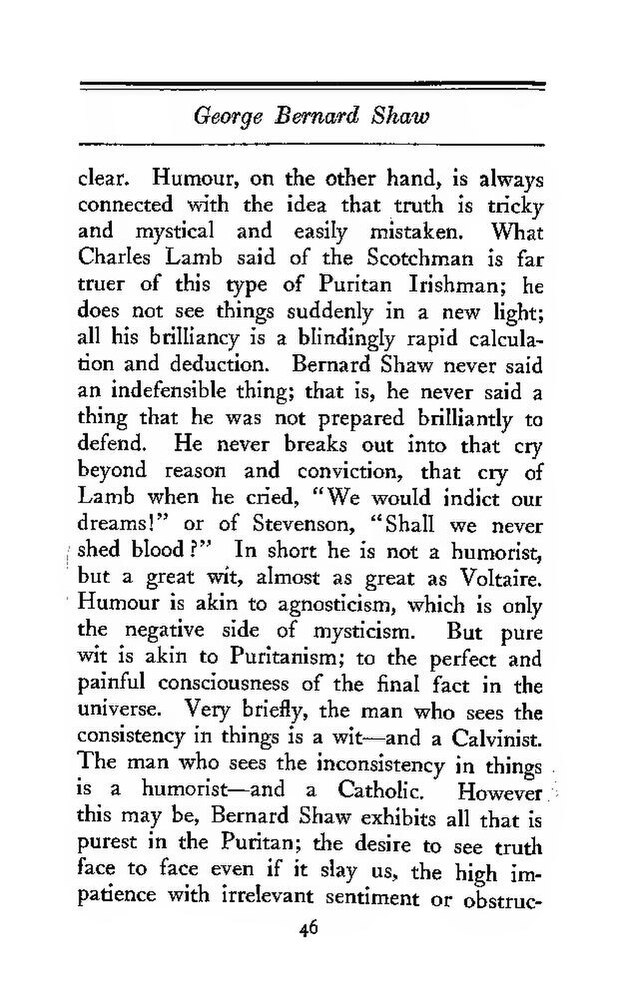clear. Humour, on the other hand, is always connected with the idea that truth is tricky and mystical and easily mistaken. What Charles Lamb said of the Scotchman is far truer of this type of Puritan Irishman; he does not see things suddenly in a new light; all his brilliancy is a blindingly rapid calculation and deduction. Bernard Shaw never said an indefensible thing; that is, he never said a thing that he was not prepared brilliantly to defend. He never breaks out into that cry beyond reason and conviction, that cry of Lamb when he cried, "We would indict our dreams!" or of Stevenson, "Shall we never shed blood?" In short he is not a humorist, but a great wit, almost as great as Voltaire. Humour is akin to agnosticism, which is only the negative side of mysticism. But pure wit is akin to Puritanism; to the perfect and painful consciousness of the final fact in the universe. Very briefly, the man who sees the consistency in things is a wit—and a Calvinist. The man who sees the inconsistency in things is a humorist—and a Catholic. However this may be, Bernard Shaw exhibits all that is purest in the Puritan; the desire to see truth face to face even if it slay us, the high impatience with irrelevant sentiment or obstruc-
46
